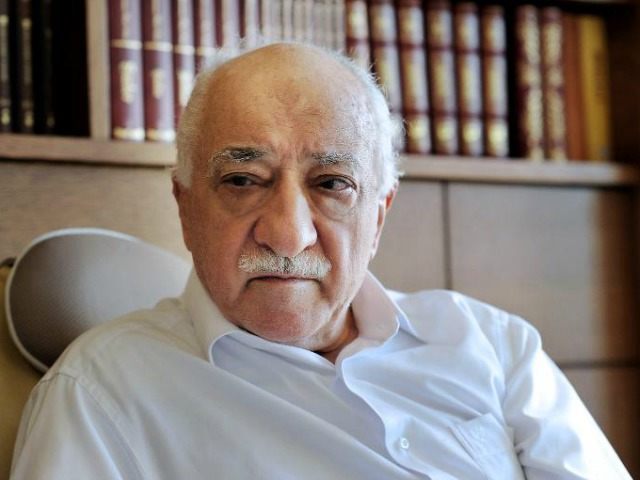According to a Turkish media report, Interpol blocked Turkey from accessing its criminal database after the Turks uploaded about 60,000 individuals wanted for the “crime” of having connections to exiled cleric Fethullah Gulen, one-time friend and now arch-enemy of President Recep Tayyip Erdogan.
Turkey refers to Gulen’s followers as the “Fethullah Terrorist Organization” or FETO. The Erdogan government fingers Gulen, who has long dwelled in Pennsylvania, as the mastermind behind last July’s failed coup attempt. Apparently, Turkey wanted these suspected Gulenists in the Interpol database so they would have trouble using their passports to travel to Europe and the United States.
Quoting Turkish-language media, Hurriyet Daily News reports an exasperated Interpol began blocking Turkish access to its database almost a year ago, which means the Gulenist uploads must have begun shortly after the coup was completely neutralized.
However, Turkey told Interpol that “the names were not picked randomly, that legal investigations were being carried out regarding thousands of suspected FETÖ members, and that the names were determined after years of legal investigations,” according to Hurriyet.
Another Turkish media organization, Erdogan-friendly newspaper Yeni Safak, criticized Interpol’s decision as serving the interests of “FETO fugitives,” who are also referred to by the euphemism “parallel structure members” (i.e., Gulen is running a shadowy parallel government through his loyal followers).
The Yeni Safak editorial charges:
Many members of the organization, such as members of the judiciary, soldiers in NATO, journalists, police officers and bureaucrats, including FETÖ prosecutors Zekeriya Öz, Fikret Seçen and Celal Kara, maintain their lives in a number of countries, particularly in Europe and the USA. Many FETÖ members are known to have applied for asylum, and their requests were granted. Fugitive FETÖ members were also revealed to have made deals with human traffickers and attempted to flee abroad with various methods. Within this scope, Interpol’s decision allowed FETÖ fugitives to have what they actually wanted.
Turkish media claim Interpol played a role in returning a member of Gulen’s organization, named Muhammet Furkan Sokmen, to Turkey from Thailand in May. The United Nations expressed “grave concern” about Sokmen’s arrest by officials in Myanmar at Turkey’s request, calling upon all nations to “put in place an effective system of review before deportation occurs.”
Turkey is not the only Middle Eastern nation bringing its political disputes before Interpol. Egypt has also asked the agency to help it arrest fugitive members of the Muslim Brotherhood, including some living in Qatar and Turkey. The Muslim Brotherhood is outlawed in Egypt as a subversive organization, much as Turkey regards the Gulenists.
The Egyptians, however, do not appear to have done anything as annoying to Interpol officials as attempting to upload 60,000 suspects to the master database. Egypt’s requests concern a smaller group of individuals named in more specific allegations, including the daughter of cleric Youssef al-Qaradawi. Qaradawi himself is living in Qatar and is one of the main points of contention in the current diplomatic crisis between Qatar and its neighbors. His daughter visited Egypt at the end of Ramadan with her husband and was detained by Egyptian authorities.

COMMENTS
Please let us know if you're having issues with commenting.